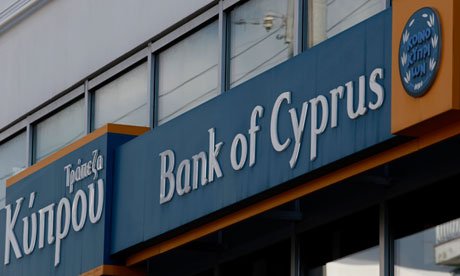
Cyprus has received the first installment of a 10 billion-euro bailout package from international creditors, which was agreed earlier this year.
Cyprus received 2 billion euros ($2.6 billion) in loans, said a statement by the European Stability Mechanism (ESM).
Another 1 billion euros will be transferred before June 30, the ESM said.
Eurozone finance ministers are also expected to sign off the latest tranche of Greece’s bailout, as it continues to struggle to reform its economy.
Another topic on the agenda at their meeting in Brussels is Slovenia, which is seen as potentially likely to follow Greece and Cyprus in seeking help from European authorities.
Concerns are growing despite a plan unveiled last week by Slovenia’s government, aimed at avoiding a bailout.
The government plans to restructure the country’s stricken banking system, raise taxes and privatize swathes of state-owned companies.
Meanwhile, Greece is expected to receive as much as 7.5 billion euros in the latest payment of its massive 240 billion-euro bailout, first agreed in 2010.
It needs the money to pay wages, pensions and bondholders.

Earlier this month, the International Monetary Fund (IMF), one of the “troika” of international lenders behind the bailout, said Greece had made “progress” in tackling its budget deficit over the last three years.
But it also said structural reforms to the economy had been “insufficient” and problems of tax evasion had not been addressed.
Further austerity measures have been a condition of Greece receiving the latest installments of its bailout.
In a separate development, Germany’s finance minister has warned again that a single EU bank rescue authority backed by a bailout fund was not viable without overhauling EU treaties.
Existing EU treaties “do not suffice to anchor beyond doubt a new and strong central resolution authority,” Wolfgang Schaeuble wrote in the Financial Times on Monday.
European officials have called for a strong central authority, backed by a European rescue fund, to decide on what to do with failing banks.
This, they say, is key to establishing a “banking union” that would, in theory, stabilize the financial system in the region.
But Wolfgang Schaeuble said that promises to create an authority quickly without changing treaties would cost the EU credibility.
“We should not make promises we cannot keep,” he said.
“Amending the treaties takes time.”
Instead, he proposed that national agencies should co-operate with each other to oversee bank rescues.
This would result in a “timber-framed, not a steel-framed, banking union”, but it would buy time until treaty changes are made.
The European Commission, the EU’s executive arm, is working on a proposal for a mechanism to deal with failing banks, which it plans to unveil next month.